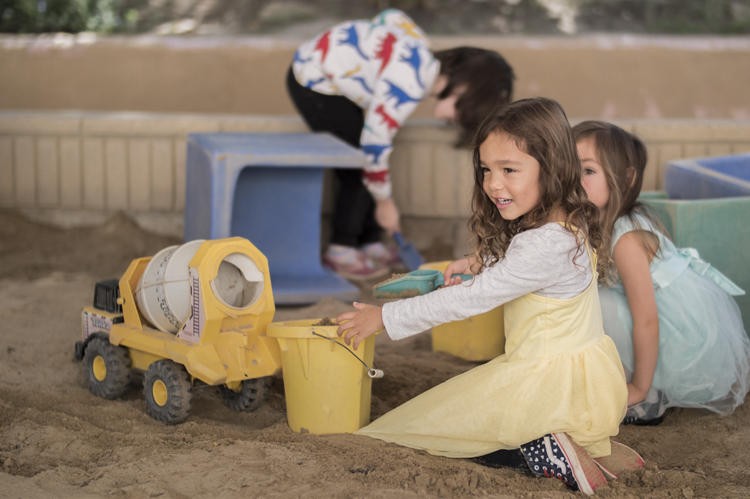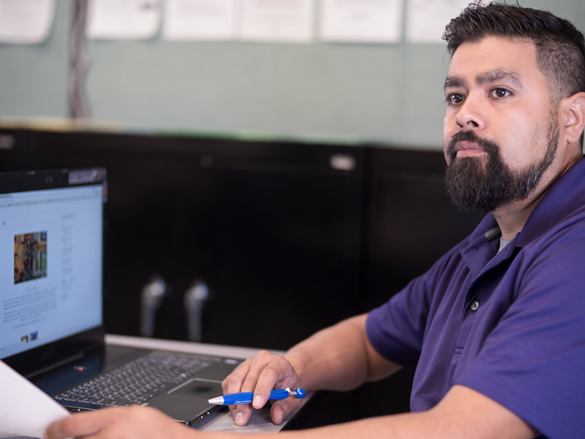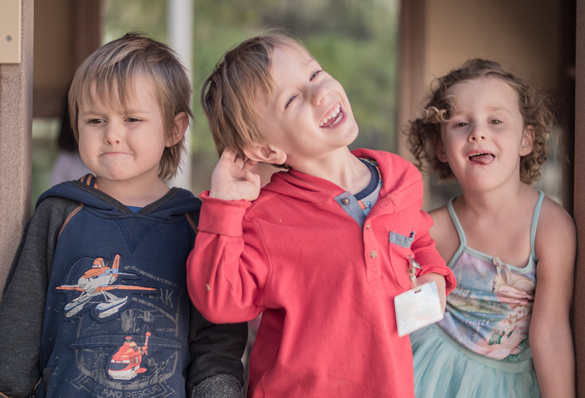Course Descriptions
* One of the Eight Core Standard Classes
ECE-100 Principles and Practices of Early Childhood Education* | Units: 3
Recommended Preparation:
ENGL-091 Examines underlying principles of quality practicesutilized in early childhood programs emphasizing the keyrole of relationships, constructive adult-child interactions,and teaching strategies to support physical, cognitiveand social/emotional development for all children. Thiscourse includes a review of the evolution of the field andintroduces the profession of early childhood education.Requires a minimum of 10 hours in a pre-approved earlychildhood setting and a current TB test, TDAP & MMRvaccine. Formerly ECE-121.
ECE-101 Child Growth and Development* | Units: 3
Prerequisite: ENGL-091
Examines the major physical, psycho-social, andcognitive/language developmental milestones ofchildren, both typical and atypical from conceptionthrough adolescence. Emphasizes interactions between maturational processes and environmental factorswhile studying developmental theory and investigativeresearch methodologies. Field observation required.
ECE-102 Child, Family and Community* | Units: 3
Prerequisite:ENGL-091
Examines the developing child in a societal context focusing on the interrelationship of family, school, and community and emphasizing historical and sociocultural factors. The processes of socialization and identity development will be highlighted, showing theimportance of respectful, reciprocal relationships that support and empower families. Formerly ECE-125.
ECE-103 Observation and Assessment* | Units: 3
Prerequisite: ECE-100
Focuses on the appropriate use of assessment and observation strategies to document development, growth, play and learning. Explores recording strategies, rating systems, portfolios, and multiple assessment tools. Requires 10 hours of observation in a child care setting. Formerly ECE -129.
ECE-104 Introduction to Curriculum for Early Childhood Education* | Units: 3
Prerequisite: ECE-100
Presents an overview of the knowledge and skillsneeded toprovidedevelopmentally appropriatecurriculum in early childhoodeducation programs.Examines the teachers role in supporting development and learning, including the essential role of play.Includesenvironment, routine, interpersonaltoneandactivityplanning, implementation and reflective evaluation.Requires 5 hours of additional coursework outside of theclassroom. Formerly ECE-123.
ECE-105 Health, Safety, Nutrition in Early Childhood Education* | Units: 3
Introduces the regulations, policies, and procedures forearly childhood curriculum related to child health, safety,and nutrition. Explores the importance of collaborationwith families and health professionals to ensure physicalhealth, mental health and safety for all children, families,and professionals. Formerly ECE-127.
ECE-106 The Role of Equity and Diversity in Early Childhood Education |
Units: 3
Explores the impact of personal experiences and socialidentity on teaching effectiveness and objectivity whenworking with young children and families. Formerly ECE-165.
ECE-130 Infant/Toddler Development and Curriculum* | Units: 3
Surveys infant/toddler development and its implicationsfor group child care settings, including principles ofinfant/toddler philosophy and care giving.
ECE-135 School Age Child Care Programs and Curriculum | Units: 3
Examines the need for and design of school age child care programs, emphasizing developmental stages of the child ages 5-13, curriculum development, the relationship of the family, and the special needs of the school age child.
ECE-140 Curriculum for School-Age Child Care | Units: 3
Presents different leadership techniques and styles as they apply to various recreational activities for school age children, emphasizing behavioral management skills, and recreational activities for large groups of children.
ECE-144 Music and Motor Development for the Young Child | Units: 2
Provides the basic skills, methods and theory in music and motor activities relating to the young child, including developing a portfolio of materials, lesson plans and classroom demonstrations.
ECE-151 Art and Creativity for Young Children | Units: 2
Explore arts and creativity in young children, including selection of developmentally appropriate media, motivational techniques and classroom arrangements. A creative art curriculum resource file will be developed.
ECE-155 Science and Math for the Young Child | Units: 2
Provides an experiential and discovery approach to learning in the areas of science and math. Students plan and implement developmentally appropriate math and science experiences for young children and apply theoretical concepts in a variety of ways.
ECE-156 Literature and Language Development for the Young Child | Units: 2
Emphasizes a basic understanding of how children learn language skills, including developing techniques to promote and establish a language and literature program in the preschool setting through the use of flannel board activities, stories, puppets, drama, finger plays and circle activities.
ECE-160 Understanding and Education of Exceptional Children | Units: 3
Introduces the field of special education, emphasizing the developmental theories as they apply to the understanding and education of exceptional children through age eight. Overview of special needs categories as defined by PL94-142 (IDEA), inclusion, and preparation of Individual Education Plan (IEP).
ECE-200 Practicum Field Experience* | Units: 3, 27 hours lecture, 81 hours lab
Prerequisite: ECE-100, 101, 102, 103, 104, 105
Provides guided supervision and application for earlychildhood education. Focuses on connecting theoryto practice and enhancing professional behaviors.Students additionally plan and implement child-centered,play-oriented approaches to teaching, learning, and assessment. Requires 6 hours per week in a preapprovedearly childhood program and 1.5 hour perweek in lecture. Requires current TB test, Tdap, MMRand influenza vaccine. Mandatory orientation meetingprior to start of semester. Formerly ECE-131.
ECE-201 Supervision and Administration of Children's Programs | Units: 3
Prerequisites: ECE-101 or PSYCH-172/172H, ECE-121 & ECE-125
Principles and practices of supervision and administration of children's programs. Content includes Title 22 and Title 5 requirements regarding organizational structure, budgets, personnel policies and practices, record keeping, reporting, community relationships and resources, regulatory agencies and parents. Also reviews social and public policy and professional groups influencing child development today.
ECE-202 Advanced Supervision and Administration of Children's Programs |
Units: 3
Prerequisite: ECE-201
Provides opportunities for administrators of children's programs to learn techniques in hiring and training staff. Covers philosophies of management and staff relations including team building and human resource development. Course meets one of the requirements of the Child Development Permits for Site Supervisor or Program Director as needed for Title 5 programs.
ECE-203 Adult Supervision in ECE: The Mentoring Process | Units: 3
Covers all aspects of supervising the adult learner in a child care setting, as well as the use of the Early Childhood Environmental Rating Scale (Harmes and Clifford), an instrument used to evaluate the quality of early childhood environments. Satisfies the adult supervision requirement for the Master Teacher level of the Child Development Permit from the Commission on Teacher Credentialing. Required for candidates of the Mentor Teacher Program. Formerly ECE-220.

 My Canyons
My Canyons  Canvas
Canvas 





